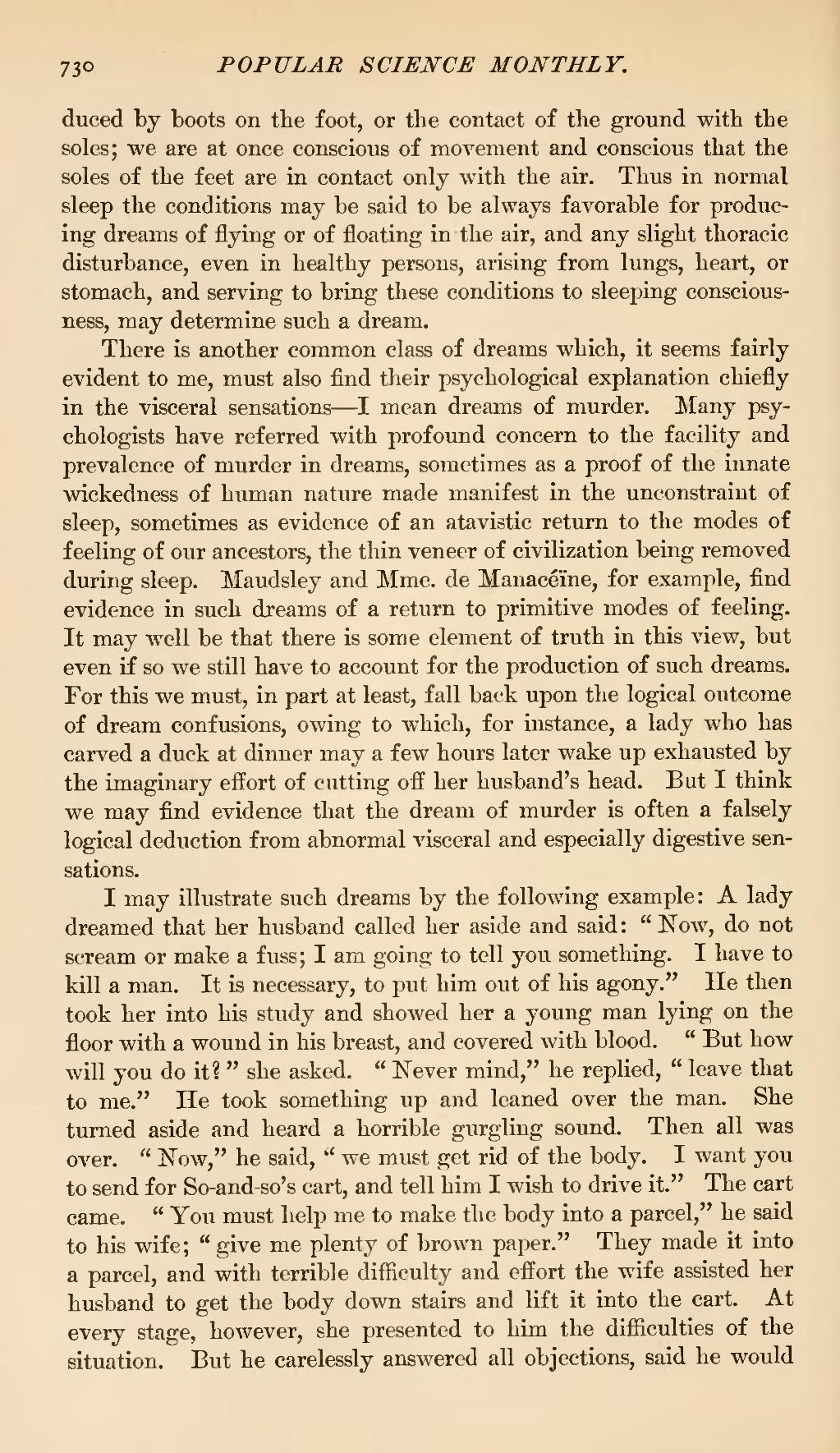duced by boots on the foot, or the contact of the ground with the soles; we are at once conscious of movement and conscious that the soles of the feet are in contact only with the air. Thus in normal sleep the conditions may be said to be always favorable for producing dreams of flying or of floating in the air, and any slight thoracic disturbance, even in healthy persons, arising from lungs, heart, or stomach, and serving to bring these conditions to sleeping consciousness, may determine such a dream.
There is another common class of dreams which, it seems fairly evident to me, must also find their psychological explanation chiefly in the visceral sensations—I mean dreams of murder. Many psychologists have referred with profound concern to the facility and prevalence of murder in dreams, sometimes as a proof of the innate wickedness of human nature made manifest in the unconstraint of sleep, sometimes as evidence of an atavistic return to the modes of feeling of our ancestors, the thin veneer of civilization being removed during sleep. Maudsley and Mme. de Manacéïne, for example, find evidence in such dreams of a return to primitive modes of feeling. It may well be that there is some element of truth in this view, but even if so we still have to account for the production of such dreams. For this we must, in part at least, fall back upon the logical outcome of dream confusions, owing to which, for instance, a lady who has carved a duck at dinner may a few hours later wake up exhausted by the imaginary effort of cutting off her husband's head. But I think we may find evidence that the dream of murder is often a falsely logical deduction from abnormal visceral and especially digestive sensations.
I may illustrate such dreams by the following example: A lady dreamed that her husband called her aside and said: "Now, do not scream or make a fuss; I am going to tell you something. I have to kill a man. It is necessary, to put him out of his agony." He then took her into his study and showed her a young man lying on the floor with a wound in his breast, and covered with blood. "But how will you do it?" she asked. "Never mind," he replied, "leave that to me." He took something up and leaned over the man. She turned aside and heard a horrible gurgling sound. Then all was over. "Now," he said, "we must get rid of the body. I want you to send for So-and-so's cart, and tell him I wish to drive it." The cart came. "You must help me to make the body into a parcel," he said to his wife; "give me plenty of brown paper." They made it into a parcel, and with terrible difficulty and effort the wife assisted her husband to get the body down stairs and lift it into the cart. At every stage, however, she presented to him the difficulties of the situation. But he carelessly answered all objections, said he would
